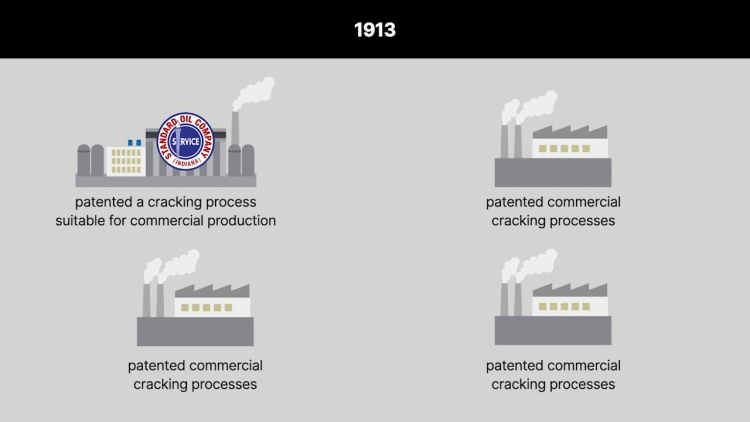Standard Oil Company (Indiana) v. United States
United States Supreme Court
283 U.S. 163, 51 S.Ct. 421, 75 L.Ed. 926 (1931)

- Written by Sean Carroll, JD
Facts
Standard Oil Company and other oil companies (companies) (defendants) held competing patents for the petroleum cracking process. The companies entered into several cross-licensing agreements, pooling their patents and dividing royalties. The defendants collectively owned 55 percent of the total cracking capacity in the United States. Cracked gasoline comprised about 26 percent of the country’s overall gasoline production. The U.S. government (plaintiff) brought an antitrust suit against the companies, alleging a violation of the Sherman Act. The government claimed that the agreements improperly permitted the companies to maintain artificially high royalty rates. The district court found in favor of the government. The United States Supreme Court granted certiorari.
Rule of Law
Issue
Holding and Reasoning (Brandeis, J.)
What to do next…
Here's why 904,000 law students have relied on our case briefs:
- Written by law professors and practitioners, not other law students. 47,100 briefs, keyed to 995 casebooks. Top-notch customer support.
- The right amount of information, includes the facts, issues, rule of law, holding and reasoning, and any concurrences and dissents.
- Access in your classes, works on your mobile and tablet. Massive library of related video lessons and high quality multiple-choice questions.
- Easy to use, uniform format for every case brief. Written in plain English, not in legalese. Our briefs summarize and simplify; they don’t just repeat the court’s language.





